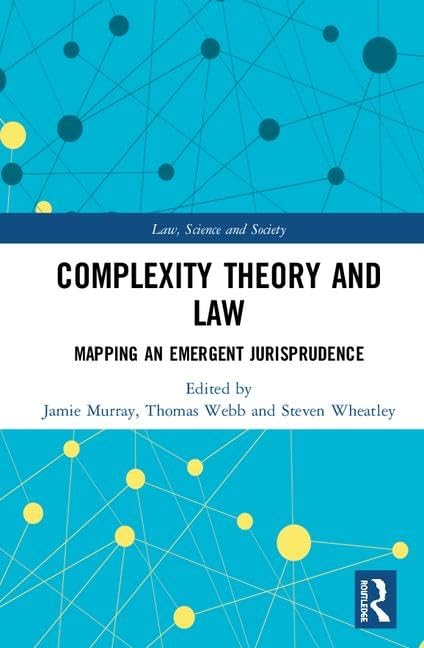Complexity Theory and Law: Mapping an Emergent Jurisprudence
Complexity Theory and Law: Mapping an Emergent Jurisprudence is backordered and will ship as soon as it is back in stock.
Couldn't load pickup availability
Genuine Products Guarantee
Genuine Products Guarantee
We guarantee 100% genuine products, and if proven otherwise, we will compensate you with 10 times the product's cost.
Delivery and Shipping
Delivery and Shipping
Products are generally ready for dispatch within 1 day and typically reach you in 3 to 5 days.
Book Details
-
Author: Jamie Murray
-
Publisher: Routledge
-
Edition: 1
-
Binding: Hardcover
-
Number of Pages: 288
-
Release Date: 19-07-2018
-
ISBN: 9780415786096
-
Package Dimensions: 9.5 x 6.5 x 0.8 inches
-
Languages: English
About The Book
In "Complexity and the Economy," Jamie Murray presents an insightful exploration of the concept of complexity in the context of economics. Aimed at readers with a background in economic theory and complex systems, the book delves into the ways in which complexity theory can enhance our understanding of economic phenomena.
Murray brings together interdisciplinary approaches to the analysis of economic systems, applying complex systems theory to illuminate patterns and behaviors that often remain hidden in traditional economic models. The text explores key ideas related to economic processes, such as how networks, interactions, and feedback loops drive economic outcomes.
In addition to its theoretical insights, the book also looks at practical applications, using examples to show how complexity theory can offer new perspectives on topics like market dynamics, financial systems, and decision-making in uncertain environments. The author presents complex ideas in an accessible way, making this book a valuable resource for students, researchers, and professionals seeking to understand the evolving landscape of modern economics.
The work is both theoretical and practical, offering a broad range of tools for anyone interested in the future of economic theory, making it an essential read for those looking to push the boundaries of traditional economic thought.





